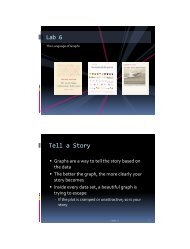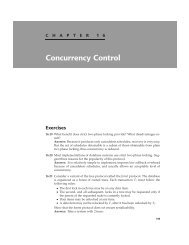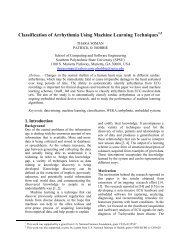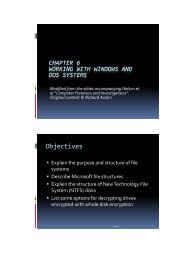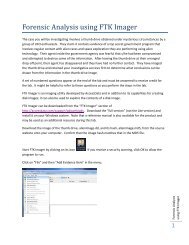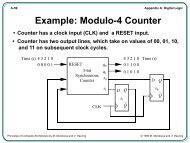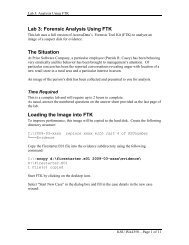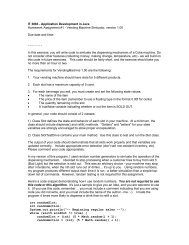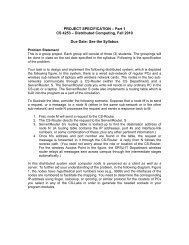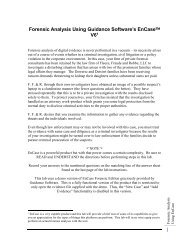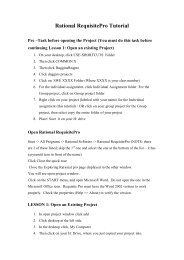You also want an ePaper? Increase the reach of your titles
YUMPU automatically turns print PDFs into web optimized ePapers that Google loves.
18.15 GNU Extensions to C and C++<br />
DRAFT, February 18, 2003, Page 98<br />
Most of the GNU C and C++ extensions are supported for CSD generation. Additional extensions are<br />
supported if the "Allow GNU Extensions" box is checked in the compiler settings.<br />
Function attributes for C are not supported unless "Allow GNU Extensions" is checked because the<br />
syntax is too close to that of a K&R style function definition. You can get around this by defining<br />
__attribute__ to nothing in the predefined macros.<br />
Nested functions are not supported. These can not be distinguished from declarations without identifier<br />
context. Our C parser does not distinguish variables from type names, so that header parsing can be<br />
avoided.<br />
Breaking strings across lines without using backslashes will not be supported. CSD generation adds text<br />
at the beginning of lines, so the original string might not be recovered if there were a syntax error that<br />
caused the start of the string not be recognized. The backslash at the end of a line applies regardless of<br />
syntactic context, so there is no danger of corrupting backslash-continued strings during CSD generation.<br />
18.16 Extended Awk Regular Expressions<br />
From the ORO documentation:<br />
This is the traditional Awk syntax that is supported:<br />
Alternatives separated by |<br />
Quantified atoms<br />
Atoms<br />
Match 0 or more times.<br />
+ Match 1 or more times.<br />
? Match 0 or 1 times.<br />
regular expression within parentheses<br />
a . matches everything including newline<br />
a ^ is a null token matching the beginning of a string but has no relation to newlines (and is<br />
only valid at the beginning of a regex; this differs from traditional awk for the sake of<br />
efficiency in Java).<br />
a $ is a null token matching the end of a string but has no relation to newlines (and is only<br />
valid at the end of a regex; this differs from traditional awk for the sake of efficiency in<br />
Java).<br />
Character classes (e.g., [abcd]) and ranges (e.g. [a-z])<br />
Special backslashed characters work within a character class<br />
Special backslashed characters<br />
\b backspace<br />
\n newline<br />
\r carriage return<br />
\t tab<br />
\f formfeed




